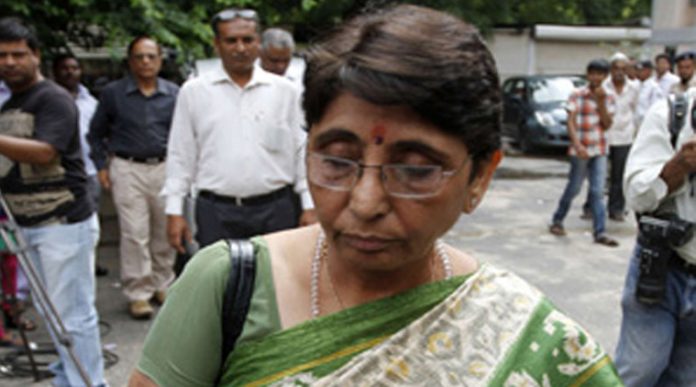By TCN News
The Indian American Muslim Council (IAMC), an advocacy group dedicated to safeguarding India’s pluralist and tolerant ethos has strongly condemned the acquittal of accused in 2007 Mecca Masjid attack and 2002 Naroda Patia massacre case and termed it a travesty of justice.
On April 16, five accused linked to extremist Hindutva organizations, including self-confessed perpetrator Swami Aseemanand, were acquitted by a special National Investigation Agency (NIA) court in Hyderabad. Under tremendous pressure from fellow Hindutva fanatics, Aseemanand retracted his confession about his role in the bomb blast which claimed nine lives and wounded 58 others.
Separately, on April 20, in a shocking judgement, the Gujarat High Court acquitted former BJP minister Maya Kodnani, who was convicted in the 2002 Naroda Patiya riots case, in which 97 people, mostly women and children were cruelly massacred. Kodnani was termed the “kingpin” of the gruesome crime by the special fast-track court when it convicted her in 2012 and sentenced her to 28 years in prison.
In both cases, survivors and families of victims have deplored the verdict and plan to appeal the judgements.
“The acquittal of accused in both the cases, despite incontrovertible evidence and confessions, represents a failure of the judiciary in upholding the rule of law,” said Ahsan Khan, President of IAMC.
On one hand, cases involving BJP and right-wing leaders and their associates like Amit Shah, Aseemanand, Maya Kodnani, DG Vanzara etc. are increasingly resulting in acquittals, on the other hand, the victims of Muzaffarnagar riots, families of dozens of Muslims lynched by cow terrorists and killed in hate crimes are being denied justice through delayed trials, quick approval of bail, or judgements that outrightly fly in the face of reason, logic and basic norms of justice.
The killers of Pehlu Khan as well as the infamous Colonel Purohit and Sadhvi Pragya Singh Thakur, both accused in the 2008 Malegaon blasts case were granted bail last year despite facing stringent terror charges. Yogi Adityanath, accused in dozens of cases of rioting and murder, has now directed all cases against himself to be withdrawn, after his rise in the BJP culminated in his elevation to the post of Chief Minister of Uttar Pradesh.
Exacerbating the situation are endemic issues with the Indian judicial system, widely acknowledged as being among the most resource-starved in the world. Indian courts have a backlog of 30 million cases, four million of which are being adjudicated in its 24 high courts, while sixty thousand cases remain pending in the federal Supreme Court which has only 31 judges.
“The rampant abuse of political power in a way that aims to shield the culprits, in the context of a judicial system that is not equipped to deliver justice, demonstrates the culture of impunity that has taken hold in India,” said Ahsan Khan. “This is why the international community needs to take notice of the rapidly declining state of human rights and religious freedom in India,” he added.


